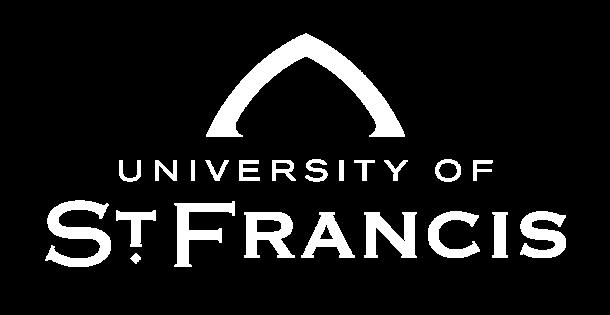
6 minute read
Is College a Scam?
Is Collegea Scam?
By: Richie Mroz Layout Designer
Advertisement
After receiving their diploma, high school graduates are faced with a tough question: what am I going to do now? High school graduates are typically faced with four main answers to that question. They can continue their minimum wage job, join the military, go to college, or join a trade. They may even choose a combination of those answers. Each answer has its upsides and downsides. There is no right or wrong answer. It is really all about what you feel passionate about and what you are willing to sacrifice in order to pursue that passion.
The most popular option is to go to college. According to the Bureau of Labor Statistics, nearly 70 percent of all high school graduates choose to go to college. College gives students the opportunity to further their education and earn a degree in something they feel passionate about. College also hands students a bill for several thousands of dollars before they even step foot on campus.
I chose to go to college and major in Communication and Media Arts. As a senior, I can say I think I made the right choice. I feel that I have a knack for many of the tasks in this type of field and I cannot see myself pursuing anything else. I really enjoy the major and the extracurricular activities that go along with it such as writing and designing for this magazine. However, like many, I will be in debt several thousands of dollars for the route I chose. According to the Federal Reserve, the average student debt for American college students is around $32,000. With this begs the question, is college a scam? Am I getting what I paid for? USF graduate student Madison Scheel states, “College is a great way to get a good job and is beneficial in the long run.” One of my favorite movies is “Good Will Hunting”. There is a line in that movie that goes as follows, “You wasted $150,000 on an education you could’ve got for $1.50 in late charges at the public library.” That movie was released in 1998 and I think that line resonates more now than ever. In my major in particular, you work with a lot of different computer programs such Adobe Photoshop, Adobe Premiere, and Adobe InDesign. With the invention of the internet and more specifically YouTube, searchers can find anything and everything they need to know about a certain topic. My major is no different. There are thousands of Photoshop tutorials on YouTube for the beginner to the expert. If one were to dedicate six months of their life learning to use Photoshop through YouTube tutorials, they probably could become an expert with the program. YouTube doesn’t cost $32,000. It doesn’t even cost $1.50. It is free.
However, there are some things that a “YouTube education” does not offer that a college education does. College is organized and sticks by a strict and regimented schedule. Students take this particular class, taught by this specific professor, on this particular day, for this amount of time. A schedule is a motivator. It keeps you on track. College also offers a community of connections. Most importantly, it gives you a piece of paper known as a degree. This piece of paper may not necessarily be important to you but it is important to the world. You can do all of the internet browsing you want but if you don’t have that piece of paper, you are stuck. In that respect, I do believe college is a scam. “You wasted $32,000 on an education you could’ve got for free on the internet.”
Save The People. PRevent the hate.
By: Diego Quevedo Carrasco President of Saints for Progress
The distinction between freedom of speech and hate speech is very difficult to make. Even people of the same political groups have vastly different opinions on what constitutes the distinction. Hate speech is generally understood as discriminatory and hateful language on the basis of sex, gender, sexual orientation, race or religion. The Supreme Court of the United States has upheld that there is no distinction. Justice Anthony Kennedy states, “A law that can be directed against speech found offensive to some portion of the public can be turned against minority and dissenting views to the detriment of all. The First Amendment does not entrust that power to the government's benevolence. Instead, our reliance must be on the substantial safeguards of free and open discussion in a democratic society.” This suggests that hate speech laws are often used to silence political dissent.
I agree with Justice Kennedy. There is likely no way for the government to fairly enforce hate speech laws. Some examples of this include the current Trump administration silencing scientific data, journalists and doxxing of protestors and previous administrations silencing anti-capitalist and anti-racist groups. My reluctance to accept hate speech laws from the government does not mean that I support hate speech or that hate speech is actually free speech.
Some on the far-right such as Charlie Kirk, Ben Shapiro and Stephen Crowder have made millions complaining about “cancel culture.” Others such as Richard Spencer act as crusaders for the right of white supremacists and neo-nazis to speak and spread far-right propaganda on college campuses. These fascists and fascist enablers are wrong. Though I agree that sometimes people on social media can be ridiculous in attempting to pull up past incidents of wrong to unacceptable behavior, this does not mean that universities, private businesses, schools and people have to allow individuals that promote harmful ideas into the public sphere of discourse. The paradox of tolerance by philosopher Karl Popper states that, “In order to maintain a tolerant society, the society must be intolerant of intolerance.” We should be able to silence hate and expel hateful people out of institutions. Hateful students become hateful lawyers, doctors and teachers.
Many conservatives, especially the conservatives I mentioned earlier, may claim that this will lead to the suppression of conservative thought. To that I respond, you should stop enabling and allowing white supremacists and their rhetoric into your groups and ideology. We should not give these people platforms. Ben Shapiro has partly inspired terrorists such as the man that shot six people in a Quebec City Mosque and the El Paso Walmart shooter that killed 22 people. The Quebec shooter frequently visited Shapiro’s Twitter and the El Paso shooter echoed Shapiro’s rhetoric of Americans being replaced by migrants.
The line between hate and free speech will always be arbitrary and blurry and should not be up to a government to define. However, the populace should be vigilant and prohibit hateful people from gaining a platform. Failing to do so has resulted and will continue to result in the death of innocent people.
USF Students USF Students Receive 10% DiscountReceive 10% Discount







USF ENCOUNTER











